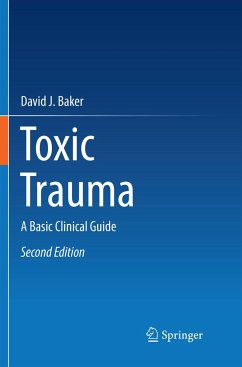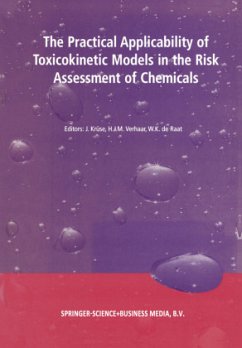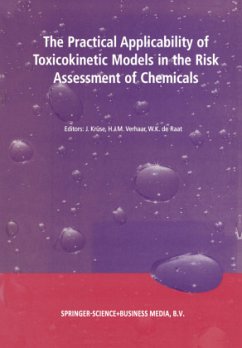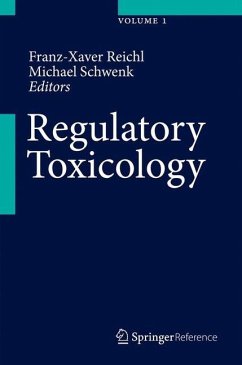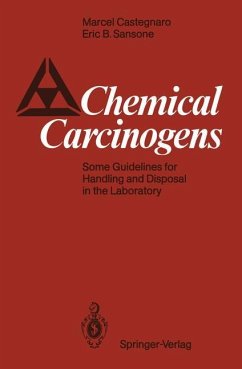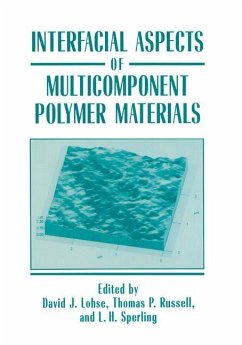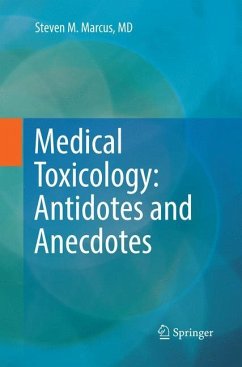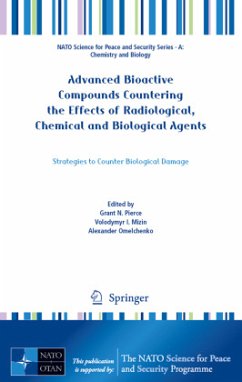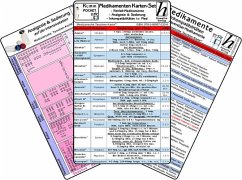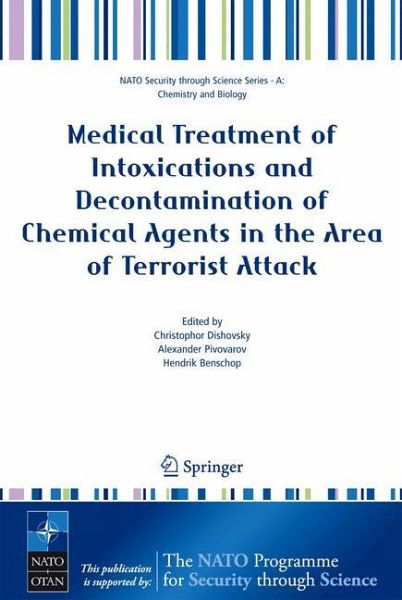
Medical Treatment of Intoxications and Decontamination of Chemical Agents in the Area of Terrorist Attack
Versandkostenfrei!
Versandfertig in 1-2 Wochen
77,99 €
inkl. MwSt.
Weitere Ausgaben:

PAYBACK Punkte
39 °P sammeln!
This book includes reports which were presented at a NATO Advanced Research Workshop (ARW) entitled "Medical Treatment of Intoxications and Decontamination of Chemical Agent in the Area of Terrorist Attack". The workshop was held on 25-28 January 2005 in Dnepropetrovsk, Ukraine. Currently, scientists and experts from many countries are working on development and implementation of a readiness for anti terrorist actions. In addition to chemical weapons, terrorists can use various toxic chemicals from chemical industry, agriculture or products released from terrorist acts on industrial facilities...
This book includes reports which were presented at a NATO Advanced Research Workshop (ARW) entitled "Medical Treatment of Intoxications and Decontamination of Chemical Agent in the Area of Terrorist Attack". The workshop was held on 25-28 January 2005 in Dnepropetrovsk, Ukraine. Currently, scientists and experts from many countries are working on development and implementation of a readiness for anti terrorist actions. In addition to chemical weapons, terrorists can use various toxic chemicals from chemical industry, agriculture or products released from terrorist acts on industrial facilities. The arsenal of chemical agents that can be used as terrorist agents is practically unlimited. The focus of this workshop was assessment of scientific concepts and practical means for management of chemical agent casualties in the area of terrorist attack with emphasis on improving the medical treatment and decontamination. These problems were analyzed from an interdisciplinary perspective.The primary objective of the ARW was to provide countries in which chemical-defense systems are currently under development with the experience and expertise of those that are more advanced and/or have already been exposed and responded to a chemical-terrorist attack. . The main areas covered were: 1. new approaches in pre-treatment and prophylaxis of nerve agent intoxication; 2. diagnosis of exposure to chemical agents ; 3. therapy of chemical agent intoxication; 4. development of personal decontamination; 5. decontamination of intoxication with chemical agents.





